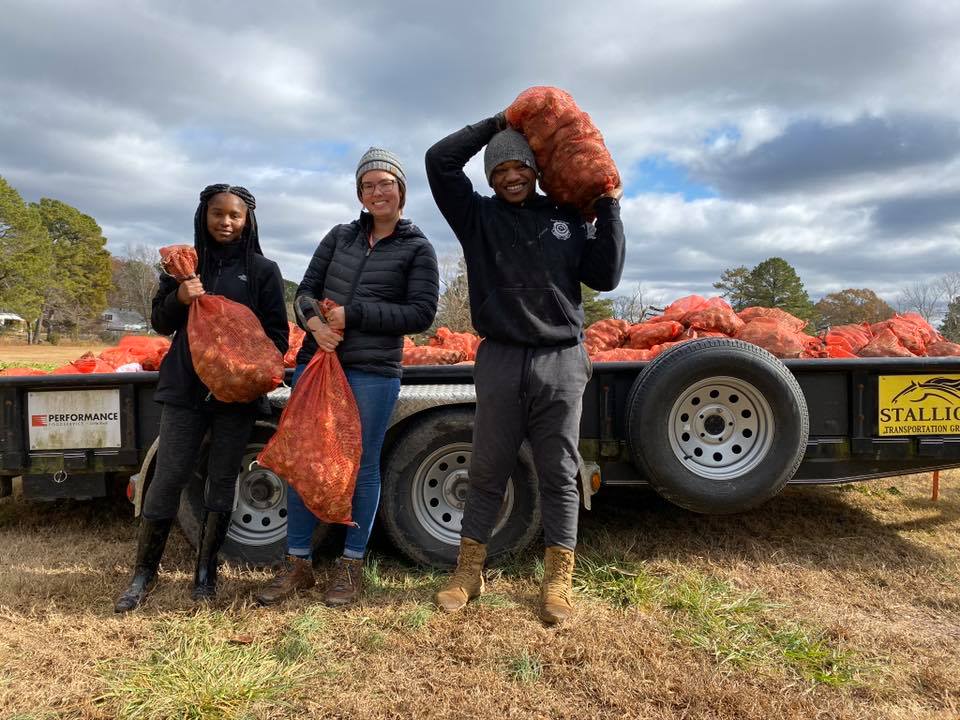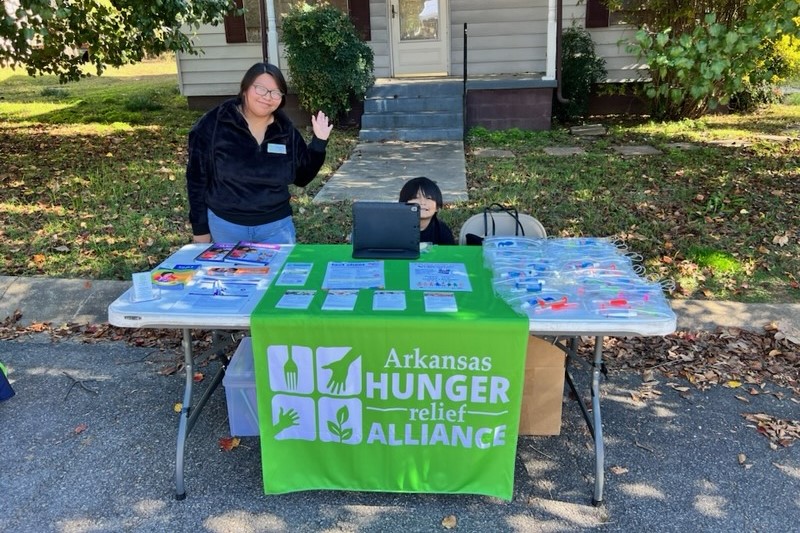No Arkansan Should Ever Go to Bed Hungry.
Learn
We work with local and national non-profit organizations as well as state and federal agencies in implementing programs designed to increase access to food and teach low-income Arkansans the skills they need to make healthy food choices.
Find Food
Arkansas’s six regional Feeding America food banks are the most direct information resource for those who find themselves in an emergency food situation. Each regional food bank has member agencies within its service areas that provide food on a daily basis to Arkansans in need.
Donate
Through our Donation and Purchasing programs, we are able to acquire food for far less than you can buy it in your local grocery store. Making cash donations means your dollar can buy more and do more.
What We Do


The Arkansas Hunger Relief Alliance, through our Feeding America food bank members, hunger relief agencies, volunteers and corporate partners, is committed to providing programs, food resources, education and advocacy to reduce hunger in Arkansas.
Your interest and generosity will help us succeed.
children in Arkansas are food insecure*
households face food insecurity**
** USDA Economic Research Service Household Food Security in the United States in 2022
people are food insecure** in Arkansas
** USDA Economic Research Service Household Food Security in the United States in 2022
How To Help
Donate
When you give to the Alliance, you’re helping us fight food insecurity in our state and get nutrition assistance to Arkansans facing hunger.
Volunteer
Though the Alliance relies on our volunteers to support our mission. Working hand-in-hand with our volunteers, we know we can create a hunger-free Arkansas.
Advocate
We advocate for sustainable solutions to hunger and are committed to protecting and promoting access to federal nutrition programs.




Real stories
Learn what Arkansas educators are saying about the value of Breakfast After the Bell programs and the Community Eligibility Provision in increasing their breakfast participation rates.
Our Support




Thank you
to just a few of our sponsors


Yellow
Rocket
Concepts
















Yellow
Rocket
Concepts














What can I do?

Contact
1400 West Markham Street, Ste 304, Little Rock, AR 72201
Newsletter
The Alliance Alert goes out to members, advocates and others who want to stay up on hunger issues in Arkansas. See our latest newsletter.
Quick Links
All Rights Reserved | Privacy Policy | Website Design by Rock City Digital
